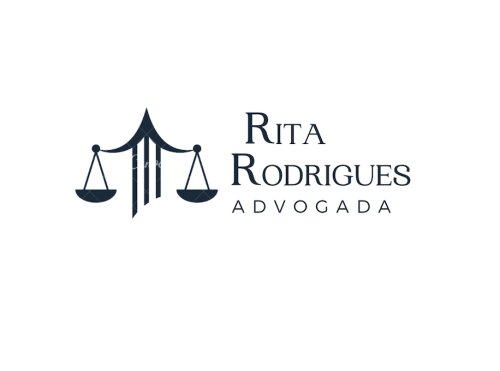Best Child Abuse Lawyers in Porto
Share your needs with us, get contacted by law firms.
Free. Takes 2 min.
Free Guide to Hiring a Family Lawyer
List of the best lawyers in Porto, Portugal
About Child Abuse Law in Porto, Portugal
Child abuse is a critical issue in Porto, Portugal, as it is throughout the country. Portuguese law strictly prohibits any form of abuse against children, including physical, emotional, and sexual abuse, as well as neglect. The law places great emphasis on the protection of children’s rights, ensuring their well-being, safety, and development. Various governmental and non-governmental organizations in Porto work actively to prevent child abuse and to intervene when abuse or neglect is suspected or confirmed. Authorities will act promptly if there are any signs of endangerment to a child’s physical or psychological health.
Why You May Need a Lawyer
There are several situations in which you may require legal support regarding child abuse in Porto. If you are a parent, guardian, or caregiver who has been accused of child abuse or neglect, it is crucial to seek legal representation to ensure your rights are protected and your defense is properly presented. If you suspect a child is being abused and are unsure how to proceed legally or how to report the abuse, a lawyer can guide you through the process. Similarly, professionals such as teachers, doctors, or social workers may need legal advice on their obligations and responsibilities when reporting suspected abuse. Victims or their families may require legal assistance in pursuing criminal complaints or civil actions, as well as accessing protective measures and support services.
Local Laws Overview
In Porto, child abuse falls under the broader legal framework of Portugal’s national laws, primarily the Penal Code and the Law for the Protection of Children and Young People in Danger. The Portuguese Penal Code criminalizes all acts of abuse, maltreatment, abandonment, and sexual exploitation of minors. The law defines a minor as anyone under 18 years old. Mandatory reporting obligations exist for professionals in contact with children, such as educators and healthcare staff. Portugal’s Child and Youth Protection Commission (Comissão de Proteção de Crianças e Jovens) is the principal entity responsible for evaluating and addressing situations where children may be at risk. Courts can impose protective measures, assign temporary custody, restrict parental rights, or, in extreme cases, remove the child from their family environment.
Frequently Asked Questions
What is considered child abuse in Porto, Portugal?
Child abuse includes any physical, emotional, or sexual harm inflicted on a child, as well as neglect, abandonment, or exploitation. Both direct actions and failures to act can be classified as abuse.
Who is required to report suspected child abuse?
Under Portuguese law, anyone who suspects a child is being abused should report it. Professionals such as teachers, doctors, and social workers have an explicit legal obligation to report suspected cases.
How can I report child abuse in Porto?
You can report suspected child abuse to the police, the Public Prosecutor's Office (Ministério Público), or the Child and Youth Protection Commission.
Can I report child abuse anonymously?
Yes, reports of child abuse can be made anonymously to the authorities, and all reports are treated confidentially.
What happens after I report child abuse?
The authorities will investigate the situation, assess the alleged victim's risk, and may take protective measures, including temporary removal from the home if warranted.
What are the penalties for child abuse under Portuguese law?
The penalties can include prison sentences, fines, and loss of parental rights, depending on the severity and nature of the abuse.
What support is available for child abuse victims?
Victims may receive psychological counseling, medical attention, legal representation, and, when necessary, safe accommodation through governmental and non-governmental organizations.
Can a child victim testify in court?
Yes, but special procedures are in place to minimize further trauma, including giving testimony via video conference or with the assistance of a support professional.
What are the legal responsibilities of schools in cases of suspected abuse?
Schools must report any suspicion of child abuse to authorities and cooperate in any investigations, while ensuring the child’s immediate safety and support.
How can I find a lawyer with experience in child abuse cases in Porto?
You can contact the Portuguese Bar Association, local legal aid offices, or specialized family and criminal law firms in Porto for referrals and assistance.
Additional Resources
Key resources in Porto related to child abuse include: - Child and Youth Protection Commission (Comissão de Proteção de Crianças e Jovens, CPCJ) - Public Prosecutor’s Office (Ministério Público) - Local police stations (Polícia de Segurança Pública and Guarda Nacional Republicana) - Portuguese Association for Victim Support (Associação Portuguesa de Apoio à Vítima, APAV) - National Social Security Service (Segurança Social)
These organizations can provide guidance, direct support, and referrals to appropriate services and legal professionals.
Next Steps
If you need legal assistance in a child abuse matter in Porto, consider the following steps:
- Ensure the immediate safety of the child - Report the suspected abuse to the relevant authorities - Consult with a lawyer familiar with child abuse and family law - Gather any available evidence, such as medical records or witness statements - Follow guidance from legal and protection professionals regarding further actions - Reach out to support organizations for additional help and counseling
Taking prompt action is crucial to protect the child and your legal interests. If you are unsure where to begin, contacting the Child and Youth Protection Commission or seeking legal advice from a qualified lawyer in Porto is recommended.
Lawzana helps you find the best lawyers and law firms in Porto through a curated and pre-screened list of qualified legal professionals. Our platform offers rankings and detailed profiles of attorneys and law firms, allowing you to compare based on practice areas, including Child Abuse, experience, and client feedback.
Each profile includes a description of the firm's areas of practice, client reviews, team members and partners, year of establishment, spoken languages, office locations, contact information, social media presence, and any published articles or resources. Most firms on our platform speak English and are experienced in both local and international legal matters.
Get a quote from top-rated law firms in Porto, Portugal — quickly, securely, and without unnecessary hassle.
Disclaimer:
The information provided on this page is for general informational purposes only and does not constitute legal advice. While we strive to ensure the accuracy and relevance of the content, legal information may change over time, and interpretations of the law can vary. You should always consult with a qualified legal professional for advice specific to your situation.
We disclaim all liability for actions taken or not taken based on the content of this page. If you believe any information is incorrect or outdated, please contact us, and we will review and update it where appropriate.












